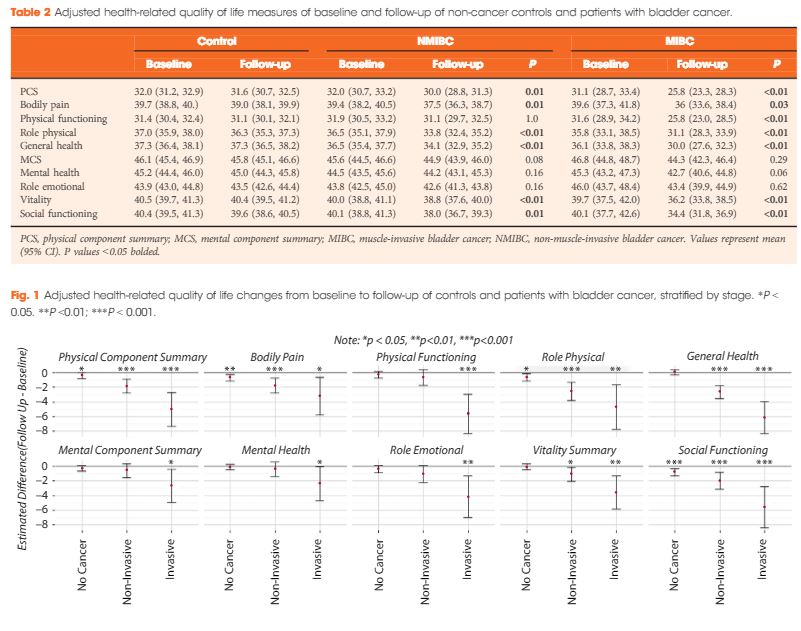Article of the Week: Impact of bladder cancer on health‐related quality of life
Every Week, the Editor-in-Chief selects an Article of the Week from the current issue of BJUI. The abstract is reproduced below and you can click on the button to read the full article, which is freely available to all readers for at least 30 days from the time of this post.
In addition to the article itself, there is an accompanying editorial written by a prominent member of the urological community. This blog is intended to provoke comment and discussion and we invite you to use the comment tools at the bottom of each post to join the conversation.
Finally, the third post under the Article of the Week heading on the homepage will consist of additional material or media. This week we feature a video discussing the paper.
If you only have time to read one article this week, it should be this one.
Impact of bladder cancer on health‐related quality of life
Abstract
Objectives
To identify changes in health‐related quality of life (HRQoL) after diagnosis of bladder cancer in older adults in comparison with a group of adults without bladder cancer (controls).
Patients and Methods
Data from the Surveillance, Epidemiology and End Results registries were linked with Medicare Health Outcomes Survey (MHOS) data. Medicare beneficiaries aged ≥65 years in the period 1998–2013, who were diagnosed with bladder cancer between baseline and follow‐up through the MHOS, were matched with control subjects without cancer using propensity scores. Linear mixed models were used to estimate predictors of HRQoL changes.
Results
After matching, 535 patients with bladder cancer (458 non‐muscle‐invasive bladder cancer [NMIBC] and 77 with muscle‐invasive bladder cancer [MIBC]) and 2 770 control subjects without cancer were identified. Both patients with NMIBC and those with MIBC reported significant declines in HRQoL scores over time vs controls: physical component summary −2 and −5.3 vs −0.4, respectively; bodily pain −1.9 and −3.6 vs −0.7; role physical −2.7 and −4.7 vs −0.7; general health −2.4 and −6.1 vs 0; vitality −1.2 and −3.5 vs −0.1; and social functioning −2.1 and −5.7 vs −0.8. All scores ranged from 0 to 100. When stratified by time since diagnosis, HRQoL improved over 1 year for some domains (role physical), but remained lower across most domains.
Conclusions
After diagnosis, patients with bladder cancer experienced significant declines in physical, mental and social HRQoL relative to controls. Decrements were most pronounced among individuals with MIBC. Methods to better understand and address HRQoL decrements among patients with bladder cancer are needed.



